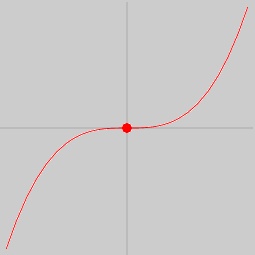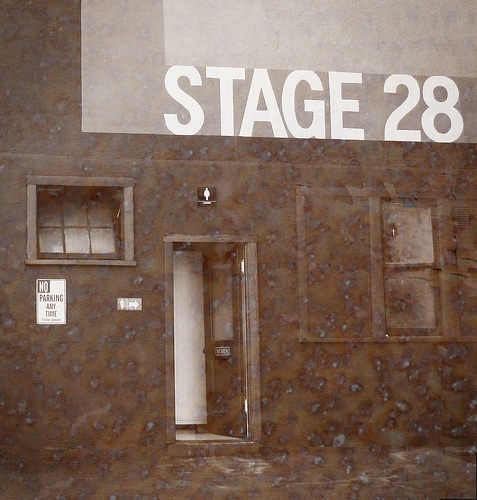Looking back on my first 2 years as a poker player, it’s not too difficult to divide my cumulative experiences into the four developmental stages, although it requires a lot of oversimplification. Poker is such a dynamic game that there’s so much to learn from each session– as soon as you think you have a grasp on the technical aspects of the game, you then realize how much there is to learn about yourself and the psychological effect that poker has on you. Dividing experience into four neat categories may be an over-generalization, but it also allows one to foresee the challenges that lay on the road ahead.
A year ago I wrote a post that chronicled my development in my first year as a poker player. While this post concentrated mostly on issues of technical development, it is also interesting to look at the development of a poker player as a purely psychological level.
When first learning a new task, all of the senses of the learner are assaulted with new input. Everything is new, and there are so many inputs that the mind is overwhelmed when trying to keep track of what’s going on. In my first live poker session, everything was a challenge– looking at my cards, remembering them, trying to watch my opponents, and even counting out chips to make a bet– all of these things were new, and required a lot of mental effort to accomplish them at even the most basic level. Even the simple things at the poker table take time, and the fledgling poker player enters a new world of knowledge.
The good news is that poker, in all its newness, is so exciting that the player learns effortlessly. Even if the player makes no effort to improve his game, becoming familiar with the patterns and rhythm of the game happens automatically, much like an infant learns to form words simply by listening to their repetition. This stage is the most exciting time in a player’s development– every session brings a tangible improvement, and the learning player acts as a sponge, absorbing all of the inputs and unconsciously storing them away for future use.
After a bit of experience, the newness wears off, and the basic tasks become simple. A player no longer needs to put effort into remembering hole cards and counting chips for bets, and begins to focus on learning the technical knowledge required to become a good player. Learning becomes a conscious effort, and the learning player must become a student of the game in order to continue improving. Books, conversations with other players, and careful evaluation of one’s play help to create a deeper understanding of the game for the player in stage 2.
Endeavors that require a large amount of technical skill cannot be learned without a great deal of experience. The guitar player who wishes to reach mediocrity must be able to play notes and chords without thinking about where he needs to place his fingers. This can only be achieved with lots of practice. In addition to the critical thinking required for poker mastery, the student must also gain a “feel” for the game that only comes from experience. The mastery phase requires conscious study and diligent work on the part of those learning the task.
After technical mastery has been achieved, those learning the task are forced to turn inward in order to improve. The learning that occurs at this stage is focused on the internal psychology of the student, and represents the most difficult stage of development. At this point, learning slows to a crawl, and the “old ways” of learning through study and experience no longer work. The student questions the worth of the endeavor, and feels that he has learned “all that he can learn.”
The denial stage represents the “inflection point” on the curve of development: students will often give up the quest for improvement, content with technical mastery or bored with the entire process. The student realizes that not only does he no longer know how to improve, but even if he does figure out how to go beyond his current knowledge, the perceived gains will most likely be extremely small.
The poker player in the denial stage is content to be a steady winner, and his technical knowledge and experience is rewarded with consistent winning sessions. However, his game remains stagnant and he feels that something is lacking– namely, the sense of improvement he felt when reaching his current plateau.

For the few players who decide to take the final leap of faith into their chosen task, accepting the hard road towards becoming a master of the game, they are rewarded with a new world of experience. Those who rid themselves of the doubts and laziness of the denial stage and turn their gaze inward are able to gain a mastery of the task and themselves that they never imagined possible.It’s difficult for me to hypothesize about the challenges and characteristics of the true master of a task, as I have never reached this level with any task. However, I would guess that a sense of peace and effortlessness come over the master who is executing his chosen task, and that true experts are very easy to identify in the real world.
If I had to put my poker play into one of these categories, it would probably be nearing stage 3. I don’t have much time to play at the moment, but I’m confident that I’ll get back to serious play in the near future. Poker will always be there, but in the meantime I’m focused on more important things.
Thanks for reading and good journeys on your own path to mastery.

[thanks to kevin dooley and hdouble via cc]
A year ago I wrote a post that chronicled my development in my first year as a poker player. While this post concentrated mostly on issues of technical development, it is also interesting to look at the development of a poker player as a purely psychological level.
Stage 1: Novelty
When first learning a new task, all of the senses of the learner are assaulted with new input. Everything is new, and there are so many inputs that the mind is overwhelmed when trying to keep track of what’s going on. In my first live poker session, everything was a challenge– looking at my cards, remembering them, trying to watch my opponents, and even counting out chips to make a bet– all of these things were new, and required a lot of mental effort to accomplish them at even the most basic level. Even the simple things at the poker table take time, and the fledgling poker player enters a new world of knowledge.
The good news is that poker, in all its newness, is so exciting that the player learns effortlessly. Even if the player makes no effort to improve his game, becoming familiar with the patterns and rhythm of the game happens automatically, much like an infant learns to form words simply by listening to their repetition. This stage is the most exciting time in a player’s development– every session brings a tangible improvement, and the learning player acts as a sponge, absorbing all of the inputs and unconsciously storing them away for future use.
Stage 2: Mastery
After a bit of experience, the newness wears off, and the basic tasks become simple. A player no longer needs to put effort into remembering hole cards and counting chips for bets, and begins to focus on learning the technical knowledge required to become a good player. Learning becomes a conscious effort, and the learning player must become a student of the game in order to continue improving. Books, conversations with other players, and careful evaluation of one’s play help to create a deeper understanding of the game for the player in stage 2.
Endeavors that require a large amount of technical skill cannot be learned without a great deal of experience. The guitar player who wishes to reach mediocrity must be able to play notes and chords without thinking about where he needs to place his fingers. This can only be achieved with lots of practice. In addition to the critical thinking required for poker mastery, the student must also gain a “feel” for the game that only comes from experience. The mastery phase requires conscious study and diligent work on the part of those learning the task.
Stage 3: Denial
After technical mastery has been achieved, those learning the task are forced to turn inward in order to improve. The learning that occurs at this stage is focused on the internal psychology of the student, and represents the most difficult stage of development. At this point, learning slows to a crawl, and the “old ways” of learning through study and experience no longer work. The student questions the worth of the endeavor, and feels that he has learned “all that he can learn.”
The denial stage represents the “inflection point” on the curve of development: students will often give up the quest for improvement, content with technical mastery or bored with the entire process. The student realizes that not only does he no longer know how to improve, but even if he does figure out how to go beyond his current knowledge, the perceived gains will most likely be extremely small.
The poker player in the denial stage is content to be a steady winner, and his technical knowledge and experience is rewarded with consistent winning sessions. However, his game remains stagnant and he feels that something is lacking– namely, the sense of improvement he felt when reaching his current plateau.

Stage 4: Acceptance
For the few players who decide to take the final leap of faith into their chosen task, accepting the hard road towards becoming a master of the game, they are rewarded with a new world of experience. Those who rid themselves of the doubts and laziness of the denial stage and turn their gaze inward are able to gain a mastery of the task and themselves that they never imagined possible.It’s difficult for me to hypothesize about the challenges and characteristics of the true master of a task, as I have never reached this level with any task. However, I would guess that a sense of peace and effortlessness come over the master who is executing his chosen task, and that true experts are very easy to identify in the real world.
Conclusion
If I had to put my poker play into one of these categories, it would probably be nearing stage 3. I don’t have much time to play at the moment, but I’m confident that I’ll get back to serious play in the near future. Poker will always be there, but in the meantime I’m focused on more important things.
Thanks for reading and good journeys on your own path to mastery.

[thanks to kevin dooley and hdouble via cc]